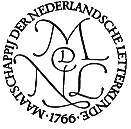Een ‘eenvoudige aandoenlijke geschiedenis, van twee Gentsche werkmanskinderen’. De functie van de idylle in Hendrik Consciences Bavo en Lieveken (1865)
Samenvatting
This paper investigates the function of the idyll in Hendrik Conscience’s novel Bavo en Lieveken (1865) against the background of Flemish cultural nationalism and bourgeois society. In contrast to common visions of the idyll as a nostalgic escape from contemporary reality into an idealized past or the rustic countryside, I argue that in this novel of manners, the idyll does not merely function as a critique of nineteenth-century urban society. Instead, I aim to demonstrate how the idyllic representation of reality in this text is strategically deployed from a bourgeois nationalist viewpoint to convince the audience of the importance of public education for the moral enhancement of working class women and children. After a concise comparison with Conscience’s later novel De baanwachter (1872), I propose that the idyllic dimensions of both novels can be understood more properly as an attempt to reconcile industrial progress with community-based values like family and religion.
Terugverwijzingen
- Er zijn momenteel geen terugverwijzingen.



